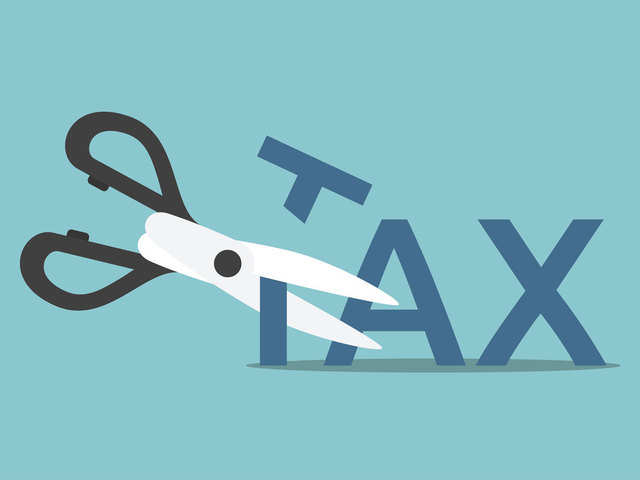How to save income tax via medical expenditures under sections 80D, 80DD, 80DDB, 80U
It is a known fact that buying health insurance for your family, dependent children and parents can help you save tax under section 80D. You can save tax up to a maximum of Rs 1 lakh per financial year if you, your family members and your parents both are above the age of 60 years.
1961 | And 80ddb |
However, if you can't afford to pay for health insurance premium or unable to buy one due to pre-existing conditions, then also you can save tax via medical expenditures.
Here is everything you need to know about saving tax via medical expenses.
- Under Section 80D
Ay 2019-20 |

Section 80c Of Income Tax Act |
a) The medical expenditure must be incurred either on self, spouse or dependent children or/and parents. Also, the person for whom the medical expenditure is incurred must be 60 years and above. Therefore, in most cases people would be able to claim this only for self/spouse or parents as dependent children are less likely to be in the 60+ age bracket.
80d Deduction For Ay 2019-20
b) The person on whom medical expenditure has been incurred should not be covered under any health insurance policy.Deduction Under Section 80d For Ay 2019-20
If these two conditions are satisfied, then one can claim a maximum deduction of Rs 50,000 in a financial year for the expenditure incurred. To claim this deduction, all the medical expenditure must be paid in any other mode other than cash. This means that all payments for medical expenses must be done via banking channels such as credit card, debit card, and Net-baking or digital channels such as mobile wallets, UPI and so on.
Of Income Tax Act Fy 2018-19 |

However, one should not get confused between the terms expenditure on preventive health check-up and medical expenditure. Expenditure on preventive health check-up can be done via cash and maximum deduction that can be claimed is Rs 5,000 irrespective of the person's age. On the other hand, medical expenditure must be done either on self/family members (as defined under law) and/or parents who are aged 60 years and above for the treatment of diseases or ailments.
All about deduction for medical expenditure
*Deduction under section 80DD and 80U does not take age into consideration
This deduction can be claimed irrespective of whether the person is covered under any health insurance policy or not. However, remember that the amount of deduction claimed will be reduced by the amount received from an insurer or reimbursed by the employer for medical treatment of the said person.
Also Read:
For both sections, the amount that can be claimed as deduction does not depend on the age of the person. It depends on the percentage of disability of the person.
If the disability is more than 40 per cent but less than 80 per cent, then in that case a deduction of Rs 75,000 will be allowed. On the other hand, the deduction of Rs 1.25 lakh will be allowed if the percentage of disability is 80 per cent or more. This deduction is fixed irrespective of the actual expenses.
Section 80DD: The deduction can be claimed for the expenditure incurred on the medical treatment (including nursing), training and rehabilitation of a person with disability. The deduction is claimed from total income of the claimant before levy of tax thereby reducing the total tax payable. The deduction can also be claimed if the individual has paid for/deposited money under any scheme of the Life Insurance Corporation (LIC) or any other insurer or the administrator or the specified company for the maintenance of the disabled dependant.
Section 80U: On the other hand, Section 80U provides deduction if the individual himself/herself is suffering from the disability.
| Medical Expenditure |
Also Read: How diagonstic centre can help you save taxAll about deduction for medical expenditure
| Family members/parents below 60 years | Family members/parents above 60 years | |
| Section 80D | Not allowed | Rs 50,000 |
| Section 80DDB | Rs 40,000 | Rs 1 lakh |
| Section 80DD/80U* | Rs 75,000 or Rs 1.25 lakh (depending on disability percentage) | Rs 75,000 or Rs 1.25 lakh (depending on disability percentage) |
- Under section 80DDB
Medical Expenditure Under Section 80d |
If the person on whom expenditure has been incurred, is below the age of 60 years then a maximum deduction of Rs 40,000 can be claimed. On the other hand, if the age of the person is 60 years and above, then in that case the maximum deduction that can be claimed is Rs 1 lakh.Section 80d Medical Expenditure |
This deduction can be claimed irrespective of whether the person is covered under any health insurance policy or not. However, remember that the amount of deduction claimed will be reduced by the amount received from an insurer or reimbursed by the employer for medical treatment of the said person.
Also Read:
- Section 80DD and section 80U
For both sections, the amount that can be claimed as deduction does not depend on the age of the person. It depends on the percentage of disability of the person.
If the disability is more than 40 per cent but less than 80 per cent, then in that case a deduction of Rs 75,000 will be allowed. On the other hand, the deduction of Rs 1.25 lakh will be allowed if the percentage of disability is 80 per cent or more. This deduction is fixed irrespective of the actual expenses.
Of Income Tax Act | Db
However, remember both these deductions cannot be claimed simultaneously.Section 80DD: The deduction can be claimed for the expenditure incurred on the medical treatment (including nursing), training and rehabilitation of a person with disability. The deduction is claimed from total income of the claimant before levy of tax thereby reducing the total tax payable. The deduction can also be claimed if the individual has paid for/deposited money under any scheme of the Life Insurance Corporation (LIC) or any other insurer or the administrator or the specified company for the maintenance of the disabled dependant.
Section 80d Of Income Tax Act Ay 2019-20 |
The scheme in which the money has been deposited should provide annuity payment or lump sum amount for the benefit of the dependent suffering from disability, in the event of death of the individual. The individual can also nominate the dependent person suffering with disability or any other person or a trust to receive payment on his behalf.Section 80U: On the other hand, Section 80U provides deduction if the individual himself/herself is suffering from the disability.